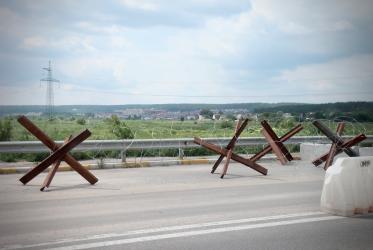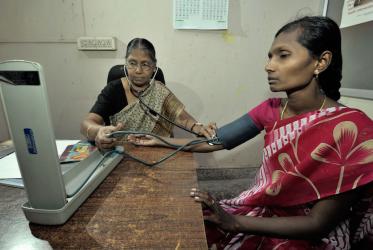Displaying 1 - 11 of 11
07 February 2024
Ukraine: Responding to humanitarian need
08 September 2022
“Good healthcare a right, not a privilege,” says WCC-EAA
11 October 2017
“It’s time to be brave, to form diverse partnerships”
02 March 2017
“Health and healing for all people, that is the challenge”
28 February 2017









